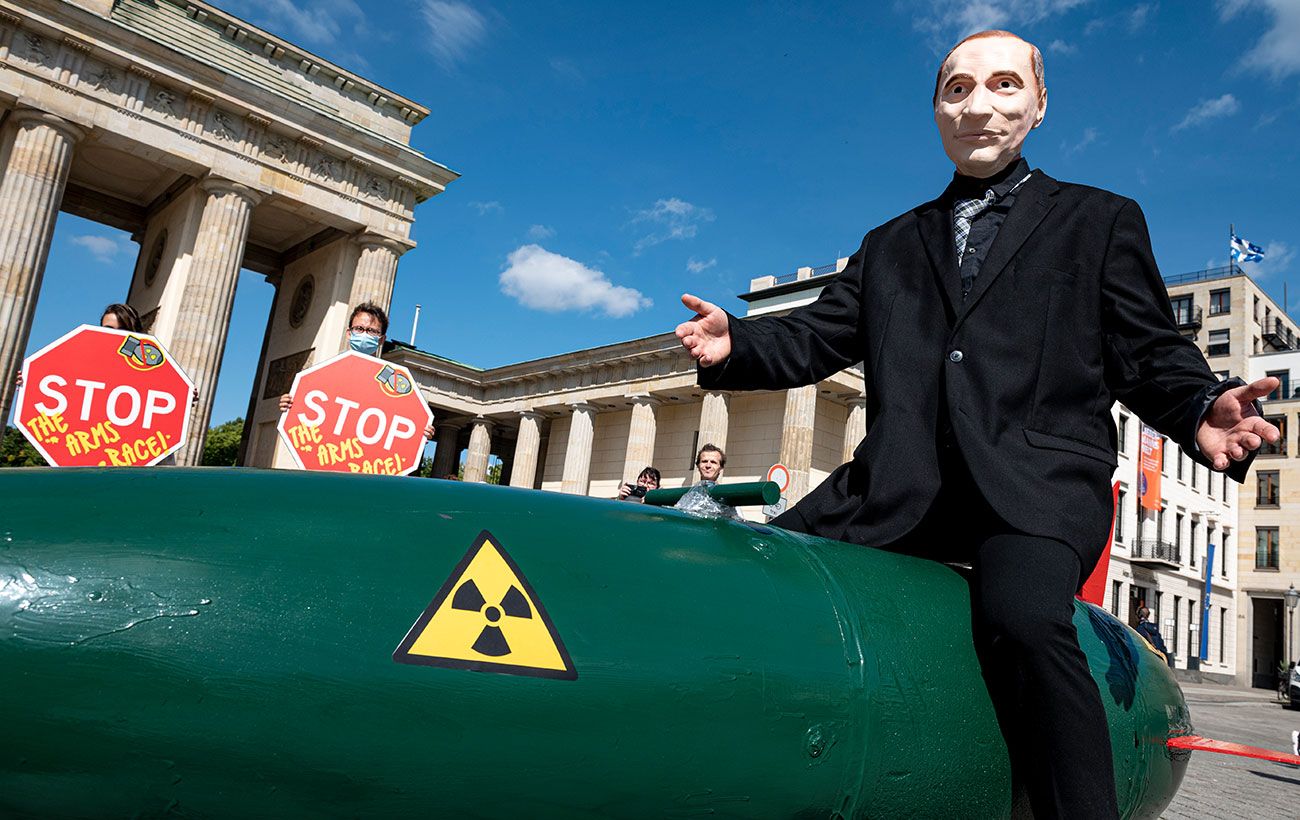RUSSIA'S NUCLEAR BLUFF OR A SCENARIO THAT HUMANITY HAS ALREADY GONE THROUGH BEFORE
Опубліковано: 2022-07-18 in International

Since the seizure of nuclear facilities on the territory of Ukraine by Russian troops, there have been repeated fears about their possible use for military purposes. However, if earlier it was only about the long-defunct Chornobyl NPP or Zaporizhzhya nuclear power plant, now we repeatedly hear from Russian leaders about the possibility of their troops using nuclear weapons.
Judging by the general context of events on the Russian-Ukrainian front, Russia resorts to this kind of narrative when there are failures in achieving the goals of their "special operation". However, taking into account the riskiness of using either nuclear weapons or the possible "irregular" situations at Ukrainian nuclear plants due to Russia's fault for the territories of the aggressor itself, it is difficult to call these actions anything other than a nuclear bluff.
Not even nuclear blackmail, but bluff. After all, nuclear blackmail is a nuclear strategy in which the state, through intimidation and the threat of using nuclear weapons, tries to get the enemy to take certain actions in its favor. This is a political way of using nuclear weapons, which is quite effective, but only in relation to non-nuclear states. If the strategy of nuclear blackmail is used against a nuclear state, the risk of escalation of the conflict and the start of a nuclear war inevitably increases. This blackmail against non-nuclear states linked to a nuclear state by a military alliance is also ineffective.
Since the support of Ukraine after February 24, 2022 by the USA (the largest nuclear power and the largest military machine in the world) is not in doubt, the prospects of nuclear blackmail of Russia are reduced to a low effect or even a partial "shot in the foot". This Russian bluff is very similar to the case of the Khrushchev era that has already passed in world history, which ended with the Caribbean crisis of 1962.
We will remind that half a century ago, the American U-2 reconnaissance aircraft discovered Soviet nuclear missile launchers secretly delivered in Cuba. Some authors believe that Nikita Khrushchev was going to pull out the missiles in Cuba as a trump card at the appropriate moment and demand the withdrawal of American troops from Europe, but the Americans learned about the redeployment of the missiles before the group could be fully deployed. The data published these days lead to an unexpected conclusion: the world crisis has become partly a storm in a glass of water, since there was practically nothing to shoot at the USA from the "Island of Freedom".
But the roots of the issue are even deeper. As it later turned out, after the launch of the first Soviet satellite, Khrushchev was desperately bluffing, claiming that Soviet factories were producing rockets "like sausages." However, the theme of "missile lag", which the Republicans allegedly allowed, was already at the center of the American presidential campaign of 1959. Meanwhile, as of January 1961, the USSR had only one 8K71 intercontinental missile at the Plesetsk cosmodrome, theoretically capable of reaching America, and even then, due to technical defects, it was not on combat duty.
And that's when the thought ripened in Khrushchev's head that it would be good to "put a hedgehog in the pants of the Americans" by pushing the carriers of nuclear weapons to their borders. In addition, having met Kennedy in Vienna in June 1961, the Soviet leader considered him an inexperienced young man who could be easily blackmailed. In fact, Kennedy, unlike Khrushchev, saw the Second World War not from the generals' dugouts, but fought in the Pacific Ocean as the commander of a torpedo boat, and he did not suffer from a lack of determination, despite his intelligent appearance.
What happened as a result? As another Soviet leader, Leonid Brezhnev, later recalled: "I will never forget how Nikita, in a panic, would sometimes send a telegram to Kennedy, then demand that it be detained and recalled. And why? Nikita wanted to deceive the Americans. Shouted at the presidium of the Central Committee: "We will hit a fly in Washington with a rocket!". And this fool Frol Kozlov echoed him: "We are holding a gun to the Americans' temples!" And what happened? Shame! And they almost did not end up in a world war. How much work had to be put in to believe that we really want peace!" said Khrushchev's successor.
The parties managed to reach a compromise, but, according to historians, the Soviet Union suffered a military-strategic and moral-political defeat. The failed operation served as one of the accusations against Khrushchev when he was removed from power two years later.
That is why, with the current superiority of American weapons, including nuclear ones, over Russian ones, the desperate cries of Moscow politicians about the possible use of nuclear weapons are nothing more than an empty bluff.
Oleksandr Rusnak, PhD in History, lecturer of the Department of History of the Yuriy Fedkovych Chernivtsi National University